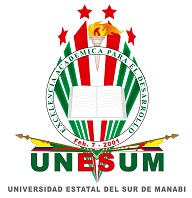COMPARATIVE ANALYSIS OF THE ANTI-PLAGIARISM TOOLS TURNITIN AND URKUND
DOI:
https://doi.org/10.47230/ra.v7i1.64Keywords:
Impact, academic plagiarism, software, Turnitin, UrkundAbstract
At present, plagiarism is a serious problem worldwide, which violates copyright and ethically. This article emphasizes the detection of verbatim copy from the Internet, to then analyze the impact that this has at an academic and professional level. It is intended as a practical objective the use and performance of detection of possible plagiarism found in different types of documents, theses, articles, among others. As a methodology, a quantitative and bibliographic analysis was obtained that allowed the failure rate to detect plagiarism in percentages that rises significantly with these tools, having a margin result for any organization. As a result of this work, tests were carried out on 30 analyzed documents that are identified when the authors of a scientific report use ideas or texts that belong to others and present them as originals. Concluding plagiarism is dishonest behavior and when discovered it can have dangerous consequences when published on any website.
Downloads
References
Aguilar, M. (2019). Plagio, un problema emergente en la escritura académica. Revista Uruguaya de Cardiología. 34(2). 1-17. https://ruc.suc.org.uy/RUC/article/view/60
Alharbi, M, A, Al-Hoorie, A,H. (2020). Comentarios de compañeros de Turnitin: ensayos controvertidos frente a ensayos no controvertidos. Int J Educ Technol High Educ. 17(17). 1-17. https://doi.org/10.1186/s41239-020-00195-1
Álvarez Carrasco, R. I. (2019). Autoría, Plagio y Sistemas Para Prevenirlo: Authorship, Plagiarism, and Systems to Prevent It. Acta Herediana 62(1). 66-72. https://www.patologiaclinica.pe/archivos/autoria-plagio-y-sistemas-para-prevenirlo-01062022123411.pdf
Bugallo Montaño B. Sobre el plagio… esa plaga. Revista de Derecho Público. 2013; 22(44):13-42.
Díaz Arce, D. (2017). Evaluación del desempeño de tres herramientas antiplagio gratuitas en la detección de diferentes formas de copy-paste procedentes de internet. EDUTEC. Revista Electrónica de Tecnología Educativa. 1(59). 1-16. https://doi.org/10.21556/edutec.2017.59.812
EcuadorUniversitario.Com. (2013). SENESCYT anuncia nuevas políticas para el desarrollo de la educación superior. https://ecuadoruniversitario.com/noticias_destacadas/senescyt-anuncia-nuevas-politicas-para-el-desarrollo-de-la-educacion-superior/
Espinoza, E. (2020). El plagio, un flageloen el ámbito académico ecuatoriano. Revista Universidad y Sociedad, 12(3), 407-415.
Fuentes, M. (2019). Instrumentos de evaluación para verificar originalidad de investigación en tesis. Revista Innova Educación. 1(3). 400-410. https://doi.org/10.35622/j.rie.2019.03.012
Real Academia Española, Diccionario de la lengua española (2011). Plagio. URL. http://buscon.rae.es/draeI/SrvltConsulta? TIPO_BUS=3&LEMA=plagio
Rivadeneira Chilán, M, J. (2017). Estudio comparativo de las interfaces programaciones aplicaciones (api´s) de búsqueda actuales para la generación de aplicaciones anti plagio de documentos de la carrera de ingeniería en sistema computacionales. (Tesis de Grado). Universidad Estatal del Sur de Manabí.
Soto, A. (2011). El plagio y su impacto a nivel académico y profesional. Revista E-Ciencias de la Información, 2(1), 1-14.
Turnitin. (2021). Somos Turnitin. Turnitin. https://www.turnitin.com/es/acerca-de
Vargas, F. (2019). Apropiación y plagio académico: un estudio de caso sobre una alumna debutante en la escritura en la educación superior. Íkala, Revista de Lenguaje y Cultura, 24(1), 155-179. https://doi.org/10.17533/udea.ikala.v24n01a09
Villacreses Cantos, J. (2021). Percepción del plagio académico en estudiantes y docentes universitarios. RES NON VERBA REVISTA CIENTÍFICA, 11(1), 151–169. https://doi.org/10.21855/resnonverba.v11i1.442
Urkund. (2020). Sistema antiplagio de Urkund. Urkund by Ouriginal. https://www.urkund.com/es/el-sistema-urkund/
Published
How to Cite
Issue
Section
License
Copyright (c) 2024 Carlos Rivero

This work is licensed under a Creative Commons Attribution-NonCommercial-ShareAlike 4.0 International License.
El comité editorial de la Revista Alcance se compromete con los autores a proteger, defender y preservar tanto su trabajo como su reputación, y toma muy en serio las acusaciones de infracción, plagio, disputas éticas y fraude. Si un autor se da cuenta de un posible plagio, copia de resultados, fraude o infracción, le rogamos que se comunique con la mayor brevedad posible con el comité editorial de la revista Alcance. El Copyright posee el propósito de proteger tanto la propiedad intelectual de los autores como sus resultados.
CC BY-NC-ND: esta licencia permite a los reutilizadores copiar y distribuir el material en cualquier medio o formato solo sin adaptarlo, solo con fines no comerciales y siempre que se le atribuya al creador.
Términos de Licencia:
Reconocimiento: debe otorgar el crédito correspondiente, proporcionar un enlace a la licencia e indicar si se realizaron cambios. Puede hacerlo de cualquier manera razonable, pero no de ninguna manera que sugiera que el licenciante lo respalda a usted o su uso.
No comercial: no puede utilizar el material con fines comerciales.
No Derivada: si remezcla, transforma o construye sobre el material, no puede distribuir el material modificado.
Sin restricciones adicionales: no puede aplicar términos legales o medidas tecnológicas que restrinjan legalmente a otros de hacer cualquier cosa que permita la licencia.
El autor esta en la obligación de seguir las exigencias según lo instruido en la licencia ubicada en el enlace: https://creativecommons.org/licenses/by-nc-nd/4.0/deed.es






